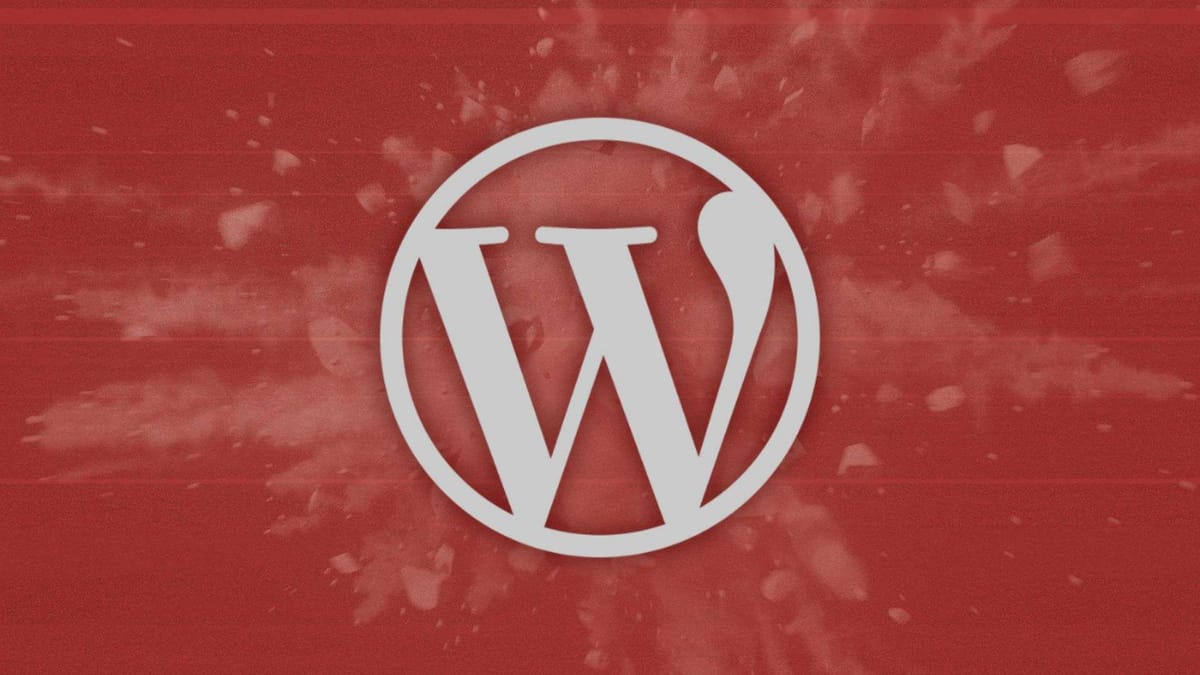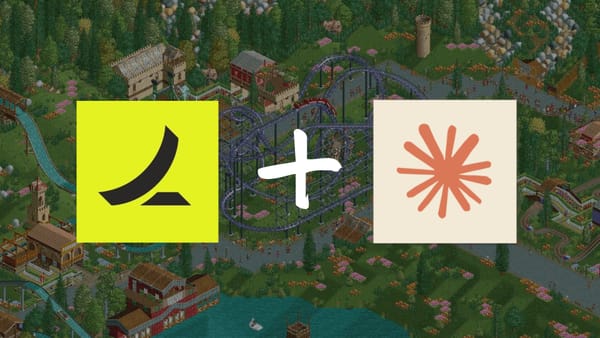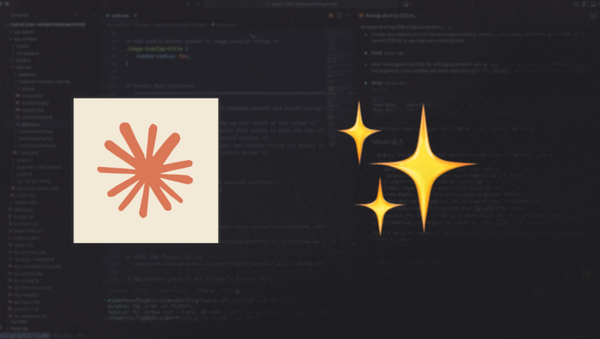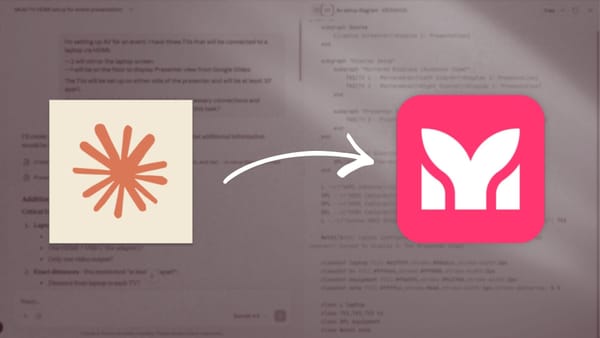Six Months of WordPress Nonsense
Similar flare-ups have happened in tech history.

It's been six months since Matt Mullenweg launched an all-out assault against WP Engine based on claims that still leave me scratching my head and feeling the ick.
When the news came out, I was managing a site on WP Engine that received about 7,000 views per month. I read the writing on the wall, and I had a sense that things would get ugly and protracted, so I migrated the site to Kinsta. My call to WP Engine to cancel the service is one of the most awkward customer service calls I've ever experienced. The rep and I were both like, Yeah, we know the elephant in the room. Yeah, we both love WordPress, and this feels like a bad breakup. Sucks that we can't close up Pandora's box.
My layman's synopsis of the conflict is this: WP Engine makes a cool half-a-billion dollars running a business on the back of WordPress, which is free and open source software. WordPress (Automattic?) feels that WP Engine ought to be giving back more to the community in the form of clocked developer hours or financial contributions that support development of the WordPress ecosystem.
My layman's synopsis of the conflict is this: WP Engine makes a cool half-a-billion dollars running a business on the back of WordPress, which is free and open source software. WordPress (Automattic?) feels that WP Engine ought to be giving back more to the community in the form of clocked developer hours or financial contributions that support development of the WordPress ecosystem.[1]
But I think the rhetoric gets sideways when Matt talks about the "tragedy of the commons"—the idea that without collective stewardship, public places get trampled on by the masses and thus destroyed. It's a fitting illustration for a field or a public park, but it's not as effective with software that can be copied ad infinitum without damage to the original. Sure, the thing won't grow, but it won't necessarily die like the grass in a field.
And then there's the other narrative in this conflict, which is that Matt Mullenweg WordPress.org claims that WP Engine has infringed on its trademarks. I've read through enough stuff about it to make my head spin, and because I am not a lawyer I can't see how WP Engine is doing anything different than WP Rocket, WP Beginner, WP Buffs, et al.
The point is that I have a hard time perceiving the material damage inflicted on WordPress if WP Engine doesn't contribute at a level satisfactory to WordPress (Matt Mullenweg?), but I absolutely perceive and feel the damage to the WordPress community by this whole debacle, which has left me pondering for the past six months: What is an open source contribution? Does it have to be direct, or can it be in-kind? Who gets to measure the value of a contribution? [2]
What is a contribution?
I love listening to podcasts, and ever since I started really building sites with WordPress, I've sought out podcasts about WordPress. I started out with Elementor Talks and later discovered Press This WordPress Community Podcast from WP Engine.
Both Elementor Talks and Press This introduced me to tons of cool things about WordPress and really expanded my vision of what can be built with it. Press This did a great job of bringing in Developer Advocates from WordPress.org onto the show to discuss upcoming features and developments in WordPress. With every episode, my appreciation and excitement about WordPress grew. I felt like many people do in the WordPress community: thrilled to be working with a tool with so much longevity, so much extensibility, and such a welcoming community. I'm not really a rose-colored glasses type of guy, but boy did it feel magical. Press This introduced me to things like headless WordPress, WPGraphQL, theme.json in block themes, and a bunch of other things that showed me I was playing in the shallow end of what WordPress can do.
And then a few months ago, I discovered the WP Briefing, which was another great listen straight from WordPress.org, which made it feel like everyone from Josephia Haden Chomphosy and Brian Gardener were rowing in the same boat like one big happy family.
And then shots were fired, lawyers got involved, weird things happened with the WordPress.org repository, WordPress did a hostile takeover of Advanced Custom Fields, people had to check a box stating whether they were affiliated with WP Engine before logging into WordPress.org, and then people started being kicked off of WordPress.org, including Joost de Valk (creator of Yoast SEO) and Morten Rand-Hendriksen (who I knew of through LinkedIn Learning tutorials). And then there was the "Alignment Offer" at Automattic which led to 8.4% of the Automattic staff leaving.
I thought the WordPress community was about bringing people together and making the internet fun, not drawing a bunch of lines in the sand that can be reconfigured at a moment's notice.
If contributions are measured purely in terms of codebase fixes, features implemented, docs written and edited, etc., then those podcasts don't count. But if contributions are considered more broadly—as in "efforts that spread the word about WordPress and foster the next generation of devs"—then all of those podcasts fit the bill. People talking about your product and helping build loyalty for your product at scale is valuable earned media. Maybe it's not direct, but doesn't it count for something? What if that content helps bring up the next 10x developer who will make incredible contributions to the codebase? The return is not measurable like developer hours, but I can say that those podcasts have done a lot more to open my eyes and foster my love for WordPress than reading the docs.
Again, I agree that if large corporations are making a boatload of cash on an open source tool, it's reasonable to expect hope that they'll give back. But the gift of open source is that it's a gift freely given. No backsies. DHH puts it well:
And yet, I can see where this is coming from. Ruby on Rails, the open-source web framework I created, has been used to create businesses worth hundreds of billions of dollars combined. Some of those businesses express their gratitude and self-interest by supporting the framework with dedicated developers, membership of The Rails Foundation, or conference sponsorships. But many also do not! And that is absolutely their right, even if it occasionally irks a little.
Community engagement and delivering core infrastructure value seem to be the key in sustaining growth—not salvos. The Rails Foundation is great examples of this—since December, five companies joined the Rails Foundation (including 1Password) because those companies believe in where Ruby on Rails is going.
I'm not sure if the broader WordPress community has a clear idea of where WordPress is going. Is the destination Gutenberg, blocks, Full Site Editing, something else? Who are we building for—content creators, small biz, enterprise, devs, all the above? Strong vision is key to maintaining focus and attracting sustainable investment. Saying you power 40% of the web is not a vision—it's status quo.
The very last episode from Press This was September 10, 2024 and the last episode from WP Briefing was September 16, 2024. I guess you can't go back to podcasting when you're lawyered up and there's a big PHP elephant in the room. These are fraught times to be behind a mic talking about software that helps you publish content on the web.
I do believe that WordPress is a big enough a tent to weather this storm, and I hope that it will ultimately lead to a more robust ecosystem, a stronger community, distributed governance, and a better structure for formal investment. I'm still building with WordPress because I believe it has staying power for the long-term. After all, tech history shows that similar things have happened before.[3] Time will tell.
Image Credit: The WordPress logo belongs to the WordPress Foundation.
The relationship between WordPress.org, WordPress.com, and Automattic is strange and incestuous. All roads in that world lead to Matt Mullenweg. It's also noteworthy that Automattic also makes about a cool half-billion dollars a year on WordPress. Matt Mullenweg says so himself. ↩︎
It turns out that the courts feel similarly about the material damage inflicted on the community. In December 2024, a court issued a preliminary injunction telling Automattic to knock it off. ↩︎
As an example, consider Guido van Rossum, who created the Python language in 1989 and stepped down as its Benevolent Dictator for Life in 2018. The community stepped in to fill governance gaps and retool processes, and the language flourished despite "Transfer of Power." Today it's a top language for machine learning and data science, and it shows no signs of slowing down. For a thorough treatment of this slice of tech history, I recommend listening to Season 3, Episode 1 "Python's Tale" from Command Line Heroes. ↩︎



